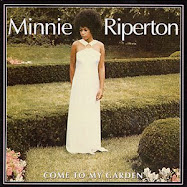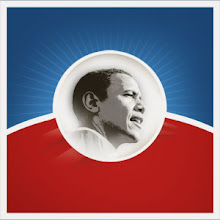Saturday, March 22, 2014
Wednesday, March 12, 2014
MARVIN GAYE
One of the pioneers of Motown, singer-songwriter and producer Marvin Gaye helped shape the sound of R & B music and is considered one of the greatest artists of all time.
Marvin Pentz Gay, Jr. was born on April 2, 1939 in Washington D.C. to Marvin Gay, Sr., a preacher, and Alberta Gay, a housewife and schoolteacher. The middle child of three children, Marvin Gaye’s childhood can be characterized by developing an early love of music in the face of an abusive relationship with his father. Marvin Gaye’s introduction to music began by singing in his father’s church choir when he was only three years old. He expanded his musical abilities by learning how to play the piano and drums. To escape the repeated beatings he endured at the hands of his father, Marvin Gaye dropped out of high school and enlisted in the Air Force.
Never losing his love of music, he began singing in doo-wop groups when he was honorably discharged from the Air Force. He joined a local Washington D.C. band, and their song, “Wyatt Earp”, recorded with Okeh Records, led to an invitation to join Harvey Fuqua’s group, The Moonglows, in 1958. The group moved to Chicago and began recording for Chess Records. Marvin Gaye then caught the attention of Barry Gordy Jr. during a Motown Christmas party where Gaye played the piano. Gordy signed him to Motown Records in 1961.
Gaye helped to shape the sound of Motown Records in the 1960s with a string of hits, including "How Sweet It Is (To Be Loved By You)" and "I Heard It Through the Grapevine", and duet recordings with Mary Wells and Tammi Terrell, later earning the titles "Prince of Motown" and "Prince of Soul". During the 1970s, he recorded the concept albums What's Going On and Let's Get It On and became one of the first artists in Motown to break away from the reins of its production company. Gaye's later recordings influenced several R&B subgenres, such as quiet storm and neo-soul.
Marvin Gaye - Stubborn Kind Of Fellow
)
Before the release of his first single, Marvin was teased about his surname, with some jokingly asking, "Is Marvin Gay?" Marvin changed his surname by adding an "e", following the style of Sam Cooke. Author David Ritz wrote that the move was to silence rumours of his sexuality while adding the move also was designed to bring more distance between Marvin and his father.
In 1962, Gaye found success as co-writer of the Marvelettes hit, "Beechwood 4-5789". His first solo hit, "Stubborn Kind of Fellow", was later released that September, reaching number 8 on the R&B chart and number 46 on the Billboard Hot 100.
Marvin Gaye - Hitchhike
)
In 1964, Gaye recorded a successful duet album with singer Mary Wells titled Together, which reached 42 on the pop album chart. The album's two-sided single, including "Once Upon a Time" and "What's the Matter With You Baby", each reach the top 20. Gaye's next solo hit, "How Sweet It Is (To Be Loved By You)", written for Gaye by Holland-Dozier-Holland, reached number 6 on the Hot 100 and reached the top 50 in the UK. Gaye started getting some TV exposure around this time on shows such as American Bandstand. Also in 1964, he appeared in the concert film, The T.A.M.I. Show. Gaye had two number one R&B singles in 1965 with the Miracles-composed "I'll Be Doggone" and "Ain't That Peculiar". Both songs became million-sellers.
After scoring a hit duet, "It Takes Two" with Kim Weston, Gaye began working with Tammi Terrell on a series of duets, mostly composed by Ashford & Simpson, including "Ain't No Mountain High Enough", "Your Precious Love", "Ain't Nothing Like the Real Thing" and "You're All I Need to Get By".
In October of the year 1967, Terrell collapsed in Gaye's arms during a performance. Gaye was reportedly devastated by Terrell's sickness and became disillusioned with the record business. In late 1968, Gaye's recording of "I Heard It Through the Grapevine" was released and became Gaye's first to reach number one on the Billboard Hot 100; it also reached the top of the charts in other countries, selling well over four million copies.
With the release of 1969’s “Too Busy Thinking About My Baby” and “That’s the Way Love Is”, Gaye became increasingly frustrated with the type of music he was making with Motown, even though his songs kept making the charts. He wanted to make more socially relevant music, so in 1971 What’s Going On was released; the first song Marvin Gaye produced himself. The album explored topics such as poverty, discrimination, politics, drug abuse and the environment. Barry Gordy was reluctant to release the album because he doubted its potential commercial success. Despite the reservations, What’s Going On was an instant hit and groundbreaking work in the soul music genre.
In 1973 Marvin Gaye changed his focus from social and political issues to more personal topics. His personal life was falling apart. His more than ten year marriage to Barry Gordy’s sister, Anna, was coming to an end. After their separation, the album Let’s Get It On surprised fans and critics with its sensual and erotic messages. The title track was a number one hit. The eventual divorce of Marvin and Anna delayed release of his next album, I Want You, also with sexually charged subjects, in 1975. After battling in divorce court, he was ordered in 1976 to pay a large percentage of the royalties of his next album to his ex-wife to cover alimony payments. That album, 1978’s Here, My Dear, chronicled his failed marriage in such detail that it nearly led to a lawsuit for invasion of privacy.
The last two years of Marvin Gaye’s life were filled with a combination of successful music and increasing drug problems. He signed with Columbia Records in 1982 and released Midnight Love. It included the hit “Sexual Healing” which earned him his only Grammy Award and topped the charts in the United States, Canada, New Zealand and the United Kingdom. Then in 1983 he reconciled with Barry Gordy on a televised appearance celebrating Motown’s 50th anniversary. His last public appearance was in 1983 when he sang his memorable rendition of “The Star Spangled Banner” at the NBA All-Star game.
Cocaine addiction forced Marvin Gaye to move in with his parents to try to straighten out his life. His strained relationship with his father, though, led him to sink even deeper into depression and thoughts of suicide. During an intense argument on April 1, 1984, Marvin Gaye was shot in the head by his father, only hours before his 45th birthday. Claiming self-defense, Marvin Gay Sr. plead no contest to voluntary manslaughter. He was cremated and his ashes were scattered across the Pacific Ocean.
Marvin Gaye - Try It Baby
)
The Mighty Temptations on background... Legend has it that Berry Gordy wrote this song for Diana Ross..but she refused to record it...
Marvin Gaye - Can I get a Witness
)
Marvin Gaye - Pride And Joy
)
Marvin Gaye - Aint That Peculiar -HQ
)
Ain't No Mountain High Enough (extra HQ) - Marvin Gaye & Tammi Terrell
)
"Ain't No Mountain High Enough" is an R&B/soul song written by Nickolas Ashford & Valerie Simpson in 1966 for the Tamla Motown label. The composition was first successful as a 1967 hit single recorded by Marvin Gaye and Tammi Terrell,
Tammi Terrell & Marvin Gaye 1967 "Your Precious Love"
)
Marvin Gaye - Inner City Blues (Make Me Wanna Holler)
)
MARVIN GAYE- GOT TO GIVE IT UP (LONG VERSION). TV PERFORMANCE 1977
)
Marvin Gaye Live In Montreux 1980
)
MARVIN GAYE Greatest Hits on video
)
Marvin Gaye - Sexual Healing
)
Marvin Gaye sings American National Anthem Marvin Gaye sings the American national anthem at the 1983 NBA All-Star Game
)
Marvin Gaye: The Final Years
)
Filmed during 1981-1982 when Marvin Gaye had left United States due to complications from previous marriages, tax issues, and many other demons he had to battle.
WHAT'S GOING ON FULL LP 36 min.(original motown detroit mix) 1971 MARVIN GAYE
)
The very best of MARVIN GAYE FULL ALBUM
)
Marvin Gaye I Want You ( Full Album )
)
Track Listings
1. I Want You [Vocal Version] 00:00
2. Come Live With Me Angel 04:34
3. After the Dance [Instrumental] 11:05
4. Feel All My Love Inside 15:30
5. I Wanna Be Where You Are 18:53
6. I Want You (Intro Jam) 20:11
7. All the Way Around 20:31
8. Since I Had You 24:22
9. Soon I'll Be Loving You Again 28:28
10. I Want You (Intro Jam) 31:43
11. After the Dance [Vocal Version] 33:24
Marvin Gaye and Tammi Terrell - Easy (Full Album)
)
MARVIN GAYE ( Documentary)
)
Marvin Gaye . What's Going On . The Life And Death Of Marvin Gaye . Documentary.
https://www.youtube.com/watch?v=8F6NEA1JUEc Copy and past in browser
Marvin Gaye is one of the great and enduring figures of soul music, but his life was one of sexual confusion, bittersweet success and ultimately death by the hand of his own father. Through Marvin's own words and intimate memories gathered from rare film and recordings, director Jeremy Marre tells the story of a 'life of outer grace and inner torment'.
Including interviews with the singer's family, friends and musical colleagues, with re-enactments and archive film of Marvin on stage, at home and in the recording studio
Sunday, March 9, 2014
The Impressions
The Impressions
Biography by Steve Huey
The Impressions' place in R&B history would be secure if they'd done nothing but launch the careers of soul legends Jerry Butler and Curtis Mayfield. But far more than that, the Impressions recorded some of the most distinctive vocal-group R&B of the '60s under Mayfield's guidance. Their style was marked by airy, feather-light harmonies and Mayfield's influentially sparse guitar work, plus, at times,
understated Latin rhythms. If their sound was sweet and lilting, it remained richly soulful thanks to the group's firm grounding in gospel tradition; they popularized the three-part vocal trade-offs common in gospel but rare in R&B at the time, and recorded their fair share of songs with spiritual themes, both subtle and overt. Furthermore, Mayfield's interest in the civil rights movement led to some of the first socially conscious R&B songs ever recorded, and his messages grew more explicit as the '60s wore on, culminating in the streak of brilliance that was his early-'70s solo work. the Impressions carried on without Mayfield, but only matched their earlier achievements in isolated instances, and finally disbanded in the
Jerry Butler & the Impressions - For Your Precious Love
the Impressions were formed in Chicago in 1957 as a doo wop group called the Roosters, a group of Chattanooga, TN, transplants that included vocalists Sam Gooden and brothers Richard and Arthur Brooks. Lead singer Jerry Butler joined up and soon brought in his friend Curtis Mayfield as guitarist; the two had
previously sung together in a church choir and a couple of local gospel groups as youths. Renamed the Impressions by their manager, the group scored a major hit in 1958 with the classic ballad "For Your Precious Love," which hit the pop Top 20 and the R&B Top Five. Butler's gospel-inflected lead vocal was a departure from the norm, and the fact that the single billed him in front of the rest of the group foreshadowed his quick exit for a solo career, after just one more single ("Come Back My Love"). With new vocalist Fred Cash in tow, Mayfield took over the lead tenor role, eventually becoming the group's chief composer as well. First, though, he hit the road as guitarist and musical director for Butler's backing band, and also co-wrote some of Butler's earliest singles, including the R&B number one "He Will Break Your Heart" in late 1960.
The Impressions - Its All Right
The Impressions - I'm So Proud
Mayfield's success as a songwriter encouraged him to form his own publishing company. With the money he earned by working with Butler, he reconvened the Impressions and brought them to New York to record for ABC-Paramount in 1961. Their first single, the Latin-inflected "Gypsy Woman," was a number two R&B smash, also reaching the pop Top 20. Several follow-ups failed to duplicate its chart success, and the Brooks brothers left the group in 1962; now down to a trio, the Impressions returned to Chicago and began recording with arranger Johnny
Pate, whose horn and string embellishments added a bit more heft to their sound. They struck gold in 1963 with "It's All Right," whose gospel-style lead-swapping helped make it not only their first R&B number one, but their biggest pop hit as well, with a peak of number four. The same year, they issued their eponymous first LP, which many critics still consider one of their finest. 1964 brought the hit single "Keep on Pushing," the first of Mayfield's numerous black pride anthems (though at this stage, his sentiments were much less explicit than they would later become). The album of the same name also featured a marching-beat cover of the gospel standard "Amen," inspired by the song's inclusion in the Sidney Poitier film Lilies of the Field. Gospel also informed what became perhaps the best-known Impressions hit, 1965's "People Get Ready"; if its lyrics weren't overtly political, Mayfield's intent was clear, as the song became an anthem of transcendence for the civil rights movement and an oft-covered soul standard.
The Impressions - People Get Ready
The Impressions - We're a Winner
The mid-'60s saw Mayfield trying to keep pace with the Motown hit factory by incorporating elements of its style into his own writing. The group recorded prolifically in 1965, but their commercial fortunes dropped off over the next couple of years. When the Impressions returned to the upper reaches of the R&B charts, it was with 1968's "We're a Winner," the most straightforward celebration of black pride Mayfield had yet composed. That summer, the group left ABC to record for Mayfield's newly formed Curtom imprint, which allowed them greater freedom in terms of the lyrical content Mayfield wanted to pursue. More aggressive message tracks like "This Is My Country," "Choice of Colors," and "Check Out Your Mind" followed over the next couple of years, as did some of the group's most consistent albums, particularly The Young Mods' Forgotten Story (1969). 1970's Check Out Your Mind was Mayfield's final album with the Impressions, but the group remained on Curtom after his departure, and he continued to write and produce some of their material.
The Impressions - Meeting Over Yonder
The Impressions - I've Been Trying
The Impressions -- Choice of Color
THE IMPRESSIONS - GROW CLOSER TOGETHER
The Impressions - This is My Country
The Impressions interview, part 1, with WDEF-TV's
The Impressions interview, part 2, with WDEF-TV
Curtis Mayfield Omnibus Part 1 of 4
Curtis Mayfield Omnibus Part 2 of 4
Curtis Mayfield Omnibus Part 3 of 4
Curtis Mayfield Omnibus Part 4 of 4
Saturday, March 8, 2014
Monday, March 3, 2014
The Best Of The Stylistics (Full Album)
01 - Can't Give You Anything (But My Love)
03:10 02 - You Make Me Feel Brand New
08:38 03 - Sing Baby Sing
11:27 04 - Betcha By Golly, Wow
15:13 06 - I'm Stone In Love With You
18:29 07 - Let's Put It All Together
21:55 08 - Sixteen Bars
25:35 09 - Na Na Is The Saddest Word
28:33 11 - Funky Weekend
31:56 12 - 7000 Dollars And You
35:10 14 - You're A Big Girl Now
38:25 15 - Hey Girl Come And Get It
41:55 16 - Thank You Baby
45:42 17 - You Are Everything
48:35 18 - People Make The World Go Round
52:01 19 - Stop Look Listen (To Your Heart)
54:50 20 - Heavy Fallin' Out
Saturday, March 1, 2014
Subscribe to:
Posts (Atom)



.png)


.png)









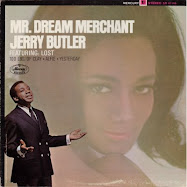


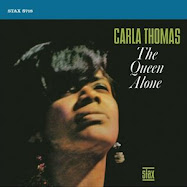
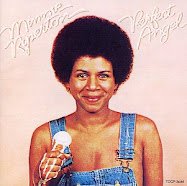.jpg)
